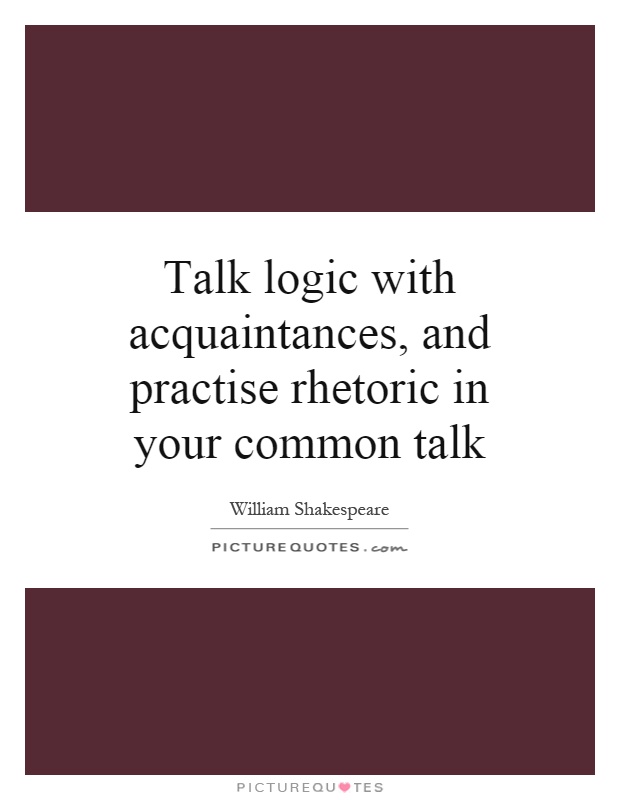Talk logic with acquaintances, and practise rhetoric in your common talk

Talk logic with acquaintances, and practise rhetoric in your common talk
William Shakespeare, the renowned playwright and poet, was a master of both logic and rhetoric in his works. His ability to craft compelling arguments and persuasive language is evident in his plays and sonnets. In his famous play "Julius Caesar," Shakespeare explores the themes of power, betrayal, and loyalty through the use of both logic and rhetoric.The quote "Talk logic with acquaintances, and practise rhetoric in your common talk" can be seen as a reflection of Shakespeare's own writing style. In his plays, characters often engage in logical debates and discussions, using reason and evidence to support their arguments. This logical approach to dialogue helps to develop the plot and reveal the motivations of the characters.
At the same time, Shakespeare also excelled in the art of rhetoric, using language to persuade and manipulate his audience. His characters are skilled orators, able to sway others with their words and rhetoric. In "Julius Caesar," for example, Mark Antony delivers a powerful speech at Caesar's funeral that turns the crowd against Brutus and the conspirators. Antony's use of rhetoric, including repetition, emotional appeals, and persuasive language, is a masterful example of Shakespeare's skill in this area.
By combining logic and rhetoric in his works, Shakespeare was able to create complex and engaging narratives that continue to resonate with audiences today. His plays are not only entertaining but also thought-provoking, challenging readers to consider the deeper meanings behind the characters' words and actions.












 Friendship Quotes
Friendship Quotes Love Quotes
Love Quotes Life Quotes
Life Quotes Funny Quotes
Funny Quotes Motivational Quotes
Motivational Quotes Inspirational Quotes
Inspirational Quotes